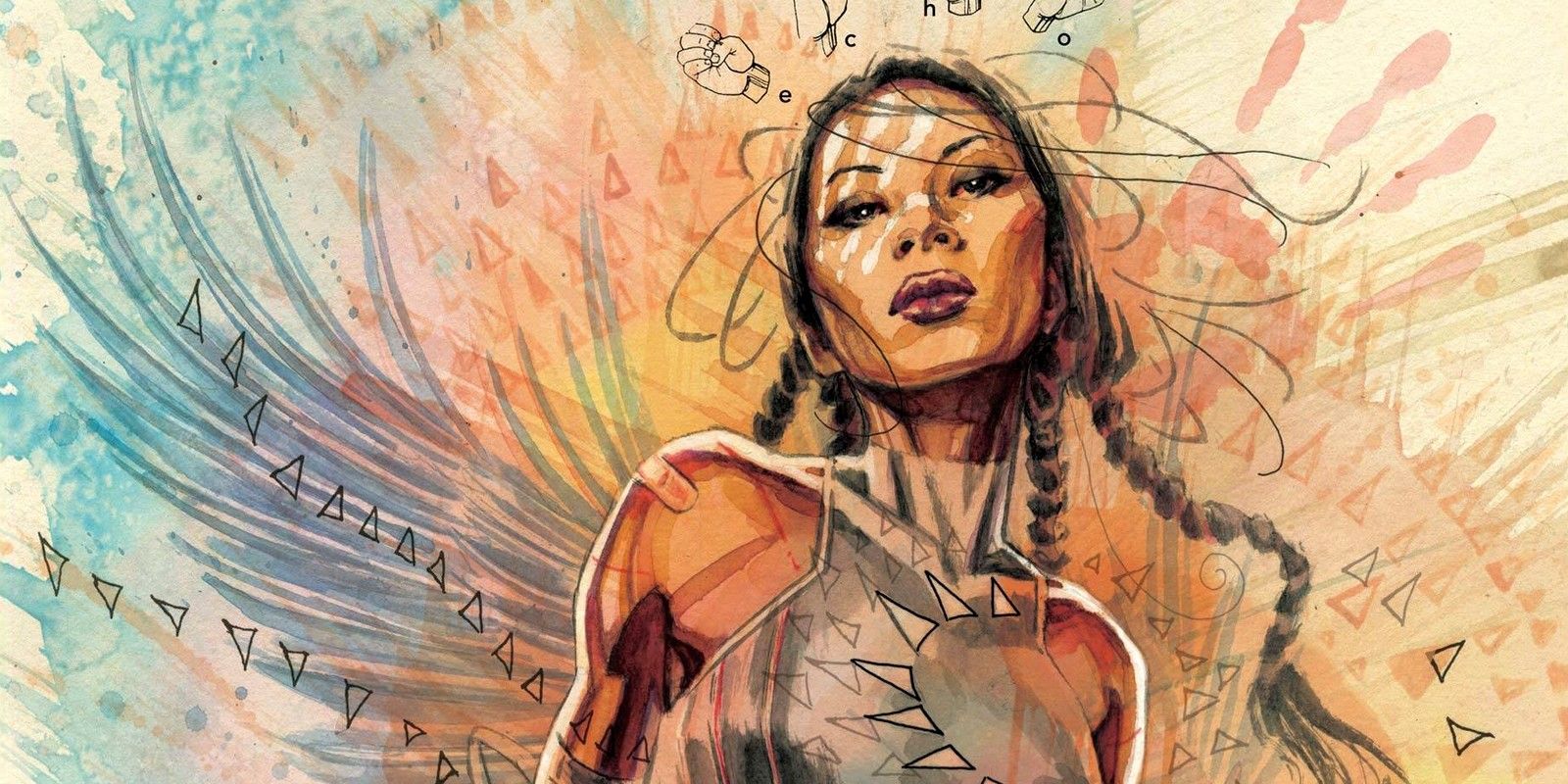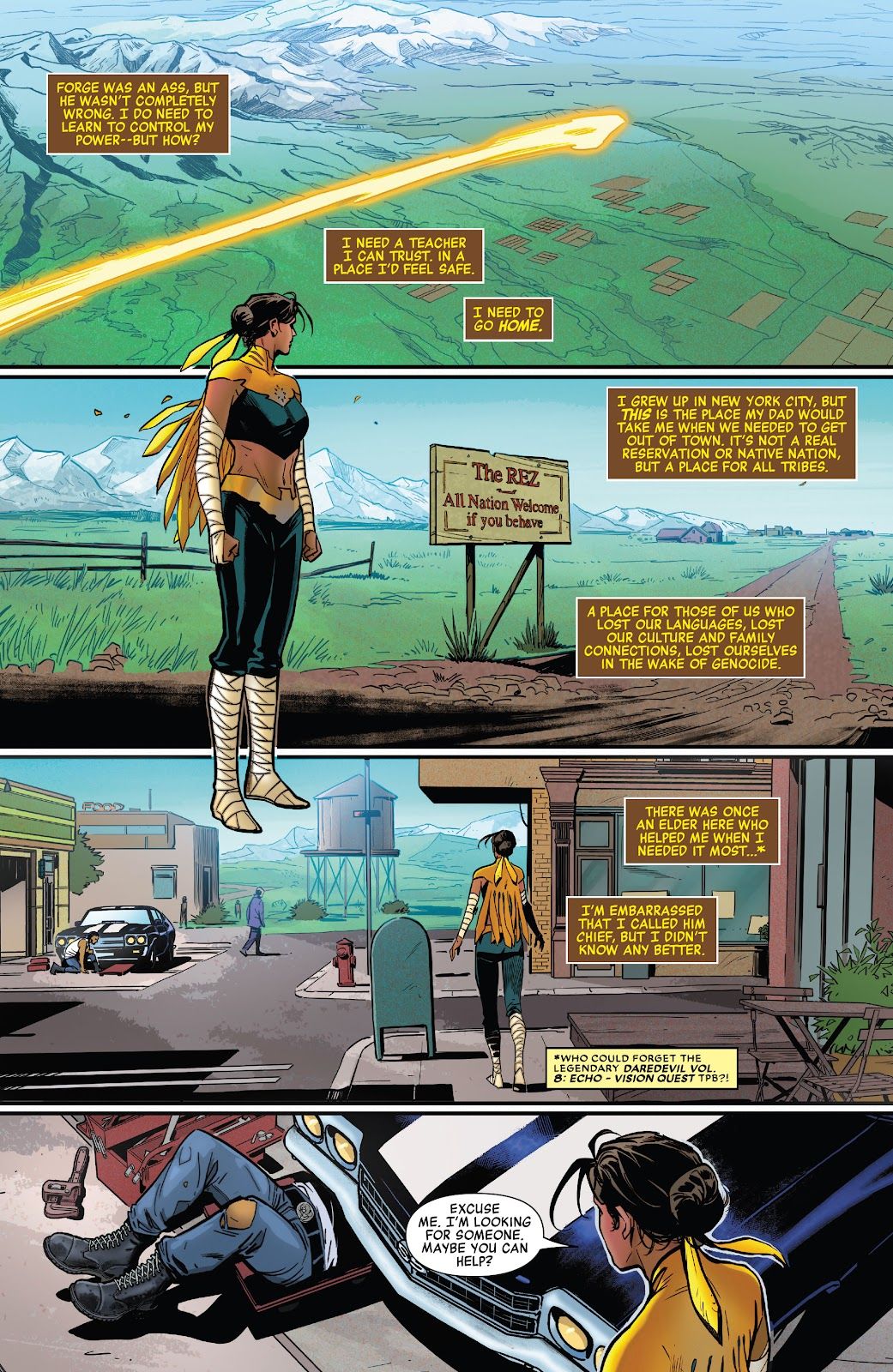Marvel's Daredevil is widely known as disabled superhero who uses his other abilities to make up for the ones lost; though he is legally blind, he can hear well beyond the range of a normal human, smell scents with the accuracy of a dog, and can read without Braille (by using his sense of touch to feel the ink on a regular piece of paper). He's not the only one: Echo is deaf but has perfect photographic reflexes and the ability to mimic the moves of anyone she sees, similar to Taskmaster. But a well-known story about her delved into problematic stereotypes - and Marvel has finally noticed.
Echo is not only one of the few hearing-impaired characters in comics (there are more blind characters, such as Daredevil and Alicia Masters), but one of the very few Native American heroes. Unfortunately, despite Marvel's best efforts to capture the voices of indigenous peoples, many of these heroes were written by white writers who only did the bare minimum of research before putting pen to paper. They made plenty of mistakes (for example, attributing the traditions and practices of one tribe to another, or just forgetting tribes existed and assuming all Native Americans shared the exact same beliefs) and adorned their characters with headdresses whenever possible. While Echo: Vision Quest doesn't exactly partake in such overt stereotypes, it is nevertheless quite liberal with the facts.
Echo: Vision Quest is about Echo embarking on a Native American "vision quest" to find herself after realizing that the Kingpin killed her father. To make matters worse, Wilson Fisk was her legal guardian at the time. Maya Lopez (Echo's real name) leaves the city of New York to find herself. As well-received as Vision Quest was, plenty of problematic elements were contained within, one of which is the contested "two wolves" story that was once claimed to be a Cherokee proverb (two wolves are inside every human, one good and one evil, and the wolf that wins is the wolf that is fed), but has since been proven false.
In Phoenix Song: Echo #1, Maya Lopez journeys home after an arduous struggle. "There was once an elder here who helped me when I needed it most," Lopez says as she travels back to the "rez", a place for all tribes to gather (though not an actual reservation). "I'm embarrassed that I called him chief, but I didn't know any better." This is clearly a way for the writer to admit that Echo: Vision Quest could have used more work; Echo's "I didn't know any better" might be Marvel admitting as much to their readers.
American fiction in the 90s inserted plenty of Native American characters, but failed to do them justice. Most of their culture was molded together into one amorphous whole (imagine judging America by one town, let alone state, and that's effectively what happened during the decade). The super-powered Daredevil side character of Echo eventually became quite popular in her own right, but Echo: Vision Quest is not Maya Lopez portrayed at her best.


